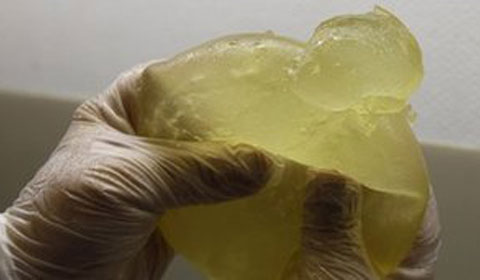Breast Implant Scandal Draws Cries for Stricter EU Regulation
Breast implant maker Poly Implants Protheses (PIP) is continuing to make headlines in recent weeks after it was divulged that its implants, which are on the market in 65 countries (roughly 40,000 women have received the PIP implants), are more likely to rupture than similar products. The reason? They are made of an industrial-grade silicone.
January 14, 2012

Breast implant maker Poly Implants Prothèse (PIP) is continuing to make headlines in recent weeks after it was divulged that its implants, which are on the market in 65 countries, are more likely to rupture than comparable products. Roughly 300,000 women worldwide have received the implants from the manufacturer, which, because they are made of an industrial-grade silicone and not the medical-grade variety, are more prone to tear.
|
This image of PIP's abandoned facility is from Flickr user Marcovdz. |
The development brings to mind CDRH director Jeffrey Shuren’s controversial comment last year that European patients were treated as “guinea pigs” for untested medical devices. That comment led to something of an outcry in defensive of the safety of the European regulatory system.
But Shuren now might be thinking to himself "see, I told you so" to support the agency's recent track record of conservatism. Recently, Reuters pointed out that FDA warned PIP about the safety of the implants over a decade ago. The breast implant scandal has also triggered a number of editorials in prominent publications arguing for stricter EU regulation.
As a report on BBC explained, Lancet warned in a recent editorial by Richard Horton, MD that there may be a number of medical devices that are subject to fairly lax regulation, citing hip replacements, heart valve replacements, and implantable defibrillators. The issue of lax regulatory control in Europe “affects the entire device industry,” Horton said in the interview.
A piece in the Guardian explains that “many of those who opted for PIP implants, often on very limited incomes, presumably took that decision in the belief that the industry, much of which gives itself a pseudo-medical camouflage, is staffed by highly trained surgeons and GPs and is properly regulated and trustworthy.” It then goes on to state that “Thanks to the greed of Monsieur Jean-Claude Mas, PIP's founder, who now faces criminal charges around the world, today we know better.” (An excerpt from a warning letter addressed to Mas can be found below the next paragraph.)
That’s quite a leap in logic—to cherry pick among one of the worst medical device scandals in recent history and claim that it reflects the behavior of the entire industry. Still, there is something of a negativity bias at work here, leading may people to remember scandals such as this one, ignoring the fact that medical technology, in the broad sense, has helped to improve the quality and duration of millions of people’s lives.
|
FDA sent Poly Implants Protheses a warning letter regarding the implants over a decade ago. |
Related Content
About the Author(s)
You May Also Like

.gif?width=700&auto=webp&quality=80&disable=upscale)

.png?width=300&auto=webp&quality=80&disable=upscale)
